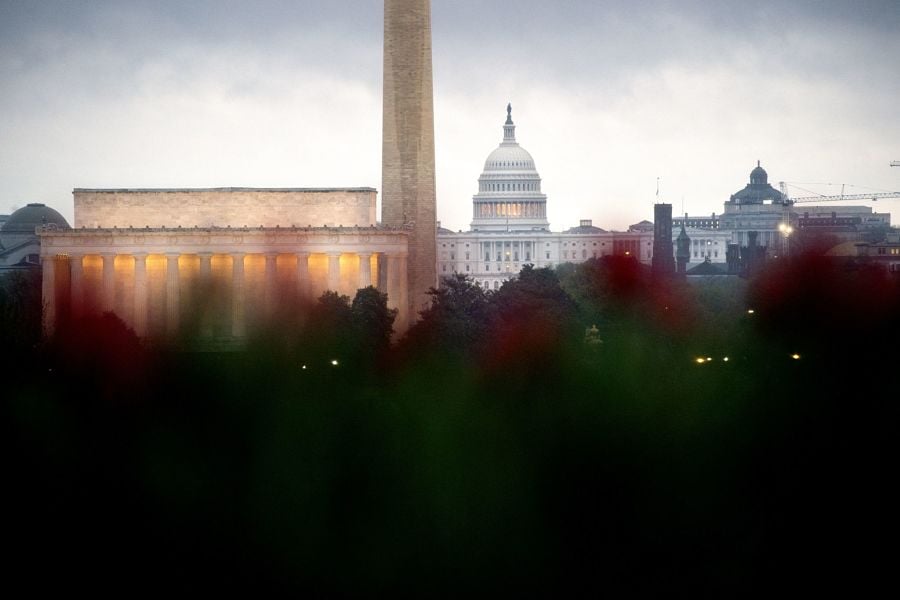

A House hearing this week that focused on retirement savings indicated the issue continues to percolate on Capitol Hill and gave advocates hope that legislation could be approved by the end of the year.
A House Education and Labor subcommittee met Tuesday to discuss retirement security and draft legislation written by Rep. Lucy McBath, D-Ga., that rolls up several other recent measures.
Among the comprehensive bill’s provisions are one that would improve fee disclosures in defined-contribution retirement plans and another that would allow annuities as qualified investment default alternatives in plans.
“This draft bill makes a number of improvements in the nation’s retirement system,” said Rep. Mark DeSaulnier, D-Calif. and chair of the subcommittee.
It’s not clear what will be included in the bill when it's formally introduced. But it adds another retirement savings frisson to the Capitol Hill environment.
Last year, the House Ways and Means gave bipartisan approval to the so-called SECURE Act 2.0, the sequel to the original landmark retirement savings legislation. In November, the House Education and Labor Committee unanimously approved the RISE Act, which would expand access to workplace retirement plans.
The pending McBath bill indicates that lawmakers are continuing to work on retirement security policy.
“We’re very encouraged by all this activity and remain optimistic that Congress is going to act on this issue that is very important to American workers and retirees,” said Paul Richman, chief government and political affairs officer at the Insured Retirement Institute.
The annuity provision in the McBath legislation is a bill called the Lifetime Income for Employees Act, which was recently introduced by Reps. Donald Norcross, D-N.J., and Tim Walberg, R-Mich.
The IRI, which represents the annuity industry, is among the champions of the Norcross-Walberg bill.
“We’re very supportive of that bill and we’d like to see that included in any retirement legislation that may move through Congress before the end of the year,” Richman said.
Having both a Democratic and Republican author bodes well for the bill, said Chris Spence, managing director of federal government relations at TIAA.
“It shows there’s still bipartisan activity out there to help improve retirement security,” Spence said. “We think [the bill] is a key piece of the retirement security puzzle because of the way it builds on SECURE 1.0.”
Following the House Ways and Means Committee’s bipartisan approval of SECURE 2.0, it has stalled on its way to the House floor. A vote by the full House has not been scheduled. The Senate has not acted on a companion bill.
Last fall, it looked as if the bipartisan sheen had worn off retirement security, when Ways and Means Republicans threatened to pull their support for SECURE 2.0 after the committee approved separate retirement legislation as part of the Build Back Better bill that they opposed.
The waters appear to be calmer now.
“My personal view is that is in the past,” Spence said. “The bipartisan path forward is still very much alive.”
Part of the reason for the optimism about retirement security legislation is its political appeal as lawmakers face voters in November.
“Members of both parties are likely to be looking for some kind of retirement savings legislation that they’ll be able to bring to constituents in advance of the midterm election,” said Edward Gottfried, director of product management at Betterment.
Rolling several retirement measures into one bill, as McBath does, gives them all a better chance of passing than they would have as stand-alone legislation. The next challenge will be to find time on the legislative calendar for floor votes before the end of the year.

Relationships are key to our business but advisors are often slow to engage in specific activities designed to foster them.

Whichever path you go down, act now while you're still in control.

Pro-bitcoin professionals, however, say the cryptocurrency has ushered in change.

“LPL has evolved significantly over the last decade and still wants to scale up,” says one industry executive.

Survey findings from the Nationwide Retirement Institute offers pearls of planning wisdom from 60- to 65-year-olds, as well as insights into concerns.
Streamline your outreach with Aidentified's AI-driven solutions
This season’s market volatility: Positioning for rate relief, income growth and the AI rebound
